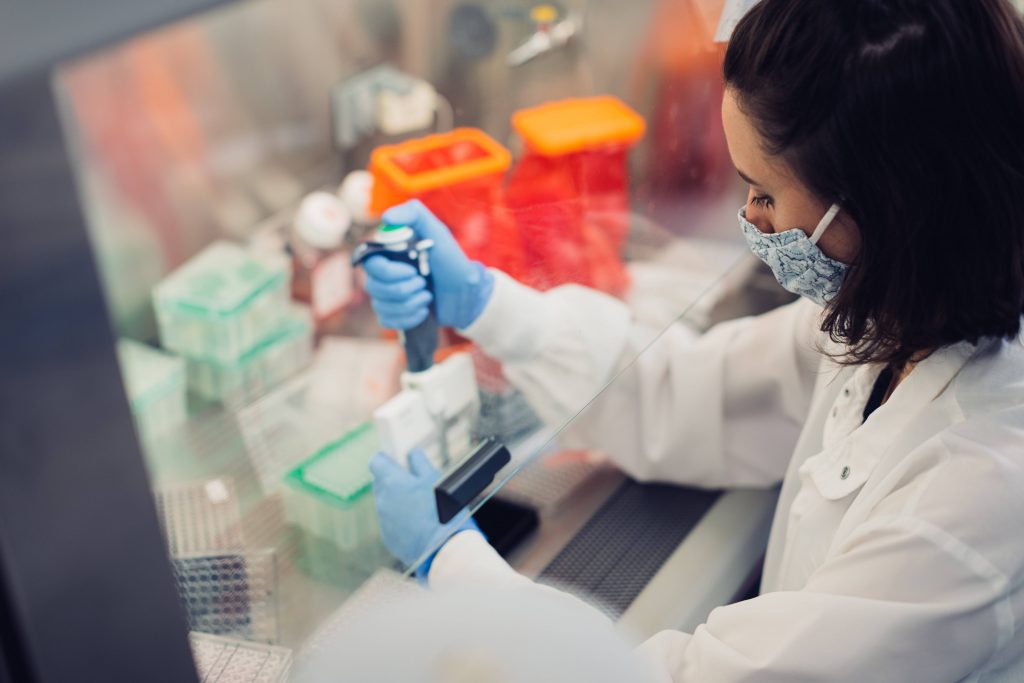-
Transplant
Mayo Clinic, Carnegie Mellon University to collaborate on transplant innovation

JACKSONVILLE, Fla. ― Mayo Clinic and Carnegie Mellon University (CMU) announced today a research agreement to transform organ transplantation. The institutions will bioengineer innovative approaches to address barriers in organ transplantation.
"This relationship with the esteemed CMU Biomedical Engineering team is a very important step in Mayo Clinic's Transforming Transplant strategic initiative," says Burcin Taner, M.D., chair of the Transplant Center at Mayo Clinic in Florida. "Research and innovation breakthroughs resulting from this initiative will address challenges and limitations that have historically existed for transplantation and subsequently unmet patient needs."
“Mayo Clinic’s Center for Regenerative Medicine is excited to collaborate with Transplant Center colleagues at Mayo Clinic to support the innovation being driven through our unique engagement with CMU," says Guojun Bu, Ph.D., associate director of the Center for Regenerative Medicine at Mayo Clinic in Florida. "This initiative will accelerate our mission in transforming the practice of medicine through biotherapeutic technologies that make organ transplantation more accessible, affordable and available to a broader population."
As part of the collaboration, Mayo Clinic biomedical researchers and Carnegie Mellon University faculty will focus on four core areas:
- Biofabrication.
- Organ repair.
- Organ monitoring using sensor systems.
- Artificial intelligence to optimize transplant processes.
"Mayo Clinic is the preeminent academic medical center and the largest organ transplant provider in the United States, and CMU is a leader in innovating and applying cutting-edge technologies to real-world problems," says Keith Cook, Ph.D., a Carnegie Mellon University professor who is head of the university's Biomedical Engineering Department. "We are excited to bring these leading institutions together to create real improvements in access to, and effectiveness of, organ transplantation."
Carnegie Mellon University's commitment to organ bioengineering is ongoing through its Bioengineered Organs Initiative. This initiative facilitates collaborative research focused on designing, creating and testing a new generation of long-term replacement organs that are fully biological, artificial or a combination of both.
Both institutions also will participate in ongoing seminars focused on the challenges facing organ transplantation and the development of new technologies to address them.
Mayo Clinic is committed to transplantation research and innovation.
Its goals include:
- Restoring donated organs by optimizing them for best outcomes and decreasing discard rates.
- Preventing graft failure in patients who have received organ transplants.
- Preventing organ failure and the need for a transplant through early diagnosis of organ dysfunction.
- Engineering new organs, subsequently eliminating the uncertainty of organ donation and long waits.
Mayo Clinic's Transplant Center, with locations in Arizona, Florida and Minnesota, has performed more than 27,000 organ transplants since 1963. More than 100,000 patients nationwide are awaiting organ transplants.
###
About Mayo Clinic's Center for Regenerative Medicine
Mayo Clinic's Center for Regenerative Medicine seeks to integrate, develop and deploy new regenerative medicine products and services that continually differentiate Mayo's practice to draw patients from around the world for complex care. Learn more on Mayo Clinic's Center for Regenerative Medicine website.
About the College of Engineering at Carnegie Mellon University
The top-ranked College of Engineering is known for its intentional focus on cross-disciplinary collaboration in research. The College is well-known for working on problems of both scientific and practical importance. Our “maker” culture is ingrained in all that we do, leading to novel approaches and transformative results. Our acclaimed faculty have a focus on innovation management and engineering to yield transformative results that will drive the intellectual and economic vitality of our community, nation and world.
About Mayo Clinic
Mayo Clinic is a nonprofit organization committed to innovation in clinical practice, education and research, and providing compassion, expertise and answers to everyone who needs healing. Visit the Mayo Clinic News Network for additional Mayo Clinic news. For information on COVID-19, including Mayo Clinic's Coronavirus Map tracking tool, which has 14-day forecasting on COVID-19 trends, visit the Mayo Clinic COVID-19 Resource Center.
Media contacts:
- Tia R. Ford, Mayo Clinic Public Affairs, newsbureau@mayo.edu
- Sara Vaccar, College of Engineering, Carnegie Mellon University, svaccar@andrew.cmu.edu







